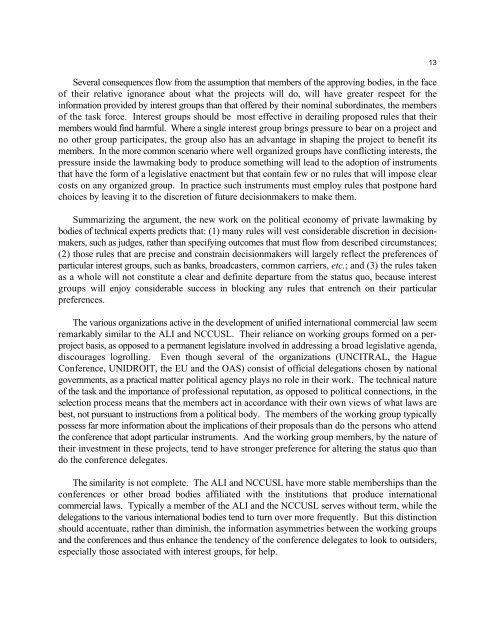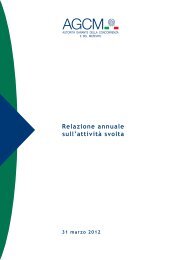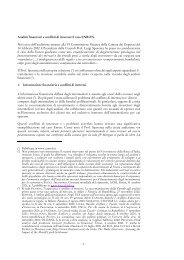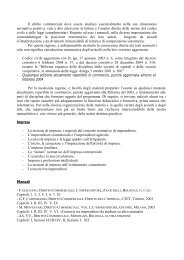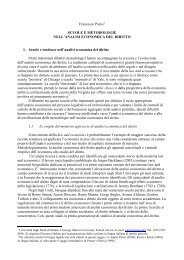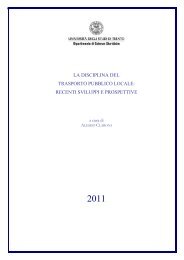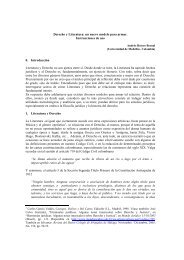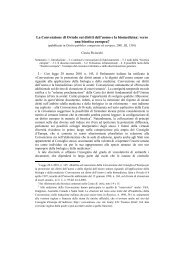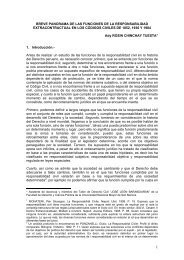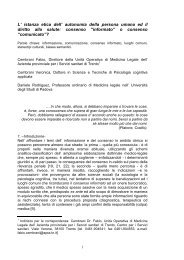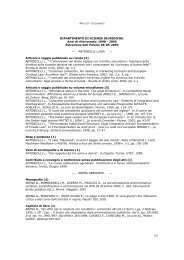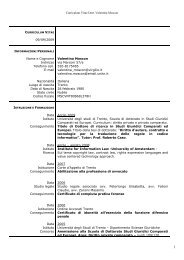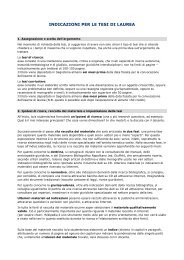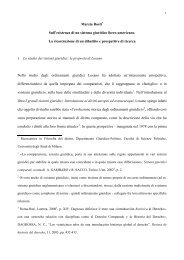The Futility of Unification and Harmonization in International ...
The Futility of Unification and Harmonization in International ...
The Futility of Unification and Harmonization in International ...
You also want an ePaper? Increase the reach of your titles
YUMPU automatically turns print PDFs into web optimized ePapers that Google loves.
Several consequences flow from the assumption that members <strong>of</strong> the approv<strong>in</strong>g bodies, <strong>in</strong> the face<strong>of</strong> their relative ignorance about what the projects will do, will have greater respect for the<strong>in</strong>formation provided by <strong>in</strong>terest groups than that <strong>of</strong>fered by their nom<strong>in</strong>al subord<strong>in</strong>ates, the members<strong>of</strong> the task force. Interest groups should be most effective <strong>in</strong> derail<strong>in</strong>g proposed rules that theirmembers would f<strong>in</strong>d harmful. Where a s<strong>in</strong>gle <strong>in</strong>terest group br<strong>in</strong>gs pressure to bear on a project <strong>and</strong>no other group participates, the group also has an advantage <strong>in</strong> shap<strong>in</strong>g the project to benefit itsmembers. In the more common scenario where well organized groups have conflict<strong>in</strong>g <strong>in</strong>terests, thepressure <strong>in</strong>side the lawmak<strong>in</strong>g body to produce someth<strong>in</strong>g will lead to the adoption <strong>of</strong> <strong>in</strong>strumentsthat have the form <strong>of</strong> a legislative enactment but that conta<strong>in</strong> few or no rules that will impose clearcosts on any organized group. In practice such <strong>in</strong>struments must employ rules that postpone hardchoices by leav<strong>in</strong>g it to the discretion <strong>of</strong> future decisionmakers to make them.Summariz<strong>in</strong>g the argument, the new work on the political economy <strong>of</strong> private lawmak<strong>in</strong>g bybodies <strong>of</strong> technical experts predicts that: (1) many rules will vest considerable discretion <strong>in</strong> decisionmakers,such as judges, rather than specify<strong>in</strong>g outcomes that must flow from described circumstances;(2) those rules that are precise <strong>and</strong> constra<strong>in</strong> decisionmakers will largely reflect the preferences <strong>of</strong>particular <strong>in</strong>terest groups, such as banks, broadcasters, common carriers, etc.; <strong>and</strong> (3) the rules takenas a whole will not constitute a clear <strong>and</strong> def<strong>in</strong>ite departure from the status quo, because <strong>in</strong>terestgroups will enjoy considerable success <strong>in</strong> block<strong>in</strong>g any rules that entrench on their particularpreferences.<strong>The</strong> various organizations active <strong>in</strong> the development <strong>of</strong> unified <strong>in</strong>ternational commercial law seemremarkably similar to the ALI <strong>and</strong> NCCUSL. <strong>The</strong>ir reliance on work<strong>in</strong>g groups formed on a perprojectbasis, as opposed to a permanent legislature <strong>in</strong>volved <strong>in</strong> address<strong>in</strong>g a broad legislative agenda,discourages logroll<strong>in</strong>g. Even though several <strong>of</strong> the organizations (UNCITRAL, the HagueConference, UNIDROIT, the EU <strong>and</strong> the OAS) consist <strong>of</strong> <strong>of</strong>ficial delegations chosen by nationalgovernments, as a practical matter political agency plays no role <strong>in</strong> their work. <strong>The</strong> technical nature<strong>of</strong> the task <strong>and</strong> the importance <strong>of</strong> pr<strong>of</strong>essional reputation, as opposed to political connections, <strong>in</strong> theselection process means that the members act <strong>in</strong> accordance with their own views <strong>of</strong> what laws arebest, not pursuant to <strong>in</strong>structions from a political body. <strong>The</strong> members <strong>of</strong> the work<strong>in</strong>g group typicallypossess far more <strong>in</strong>formation about the implications <strong>of</strong> their proposals than do the persons who attendthe conference that adopt particular <strong>in</strong>struments. And the work<strong>in</strong>g group members, by the nature <strong>of</strong>their <strong>in</strong>vestment <strong>in</strong> these projects, tend to have stronger preference for alter<strong>in</strong>g the status quo th<strong>and</strong>o the conference delegates.<strong>The</strong> similarity is not complete. <strong>The</strong> ALI <strong>and</strong> NCCUSL have more stable memberships than theconferences or other broad bodies affiliated with the <strong>in</strong>stitutions that produce <strong>in</strong>ternationalcommercial laws. Typically a member <strong>of</strong> the ALI <strong>and</strong> the NCCUSL serves without term, while thedelegations to the various <strong>in</strong>ternational bodies tend to turn over more frequently. But this dist<strong>in</strong>ctionshould accentuate, rather than dim<strong>in</strong>ish, the <strong>in</strong>formation asymmetries between the work<strong>in</strong>g groups<strong>and</strong> the conferences <strong>and</strong> thus enhance the tendency <strong>of</strong> the conference delegates to look to outsiders,especially those associated with <strong>in</strong>terest groups, for help.13


